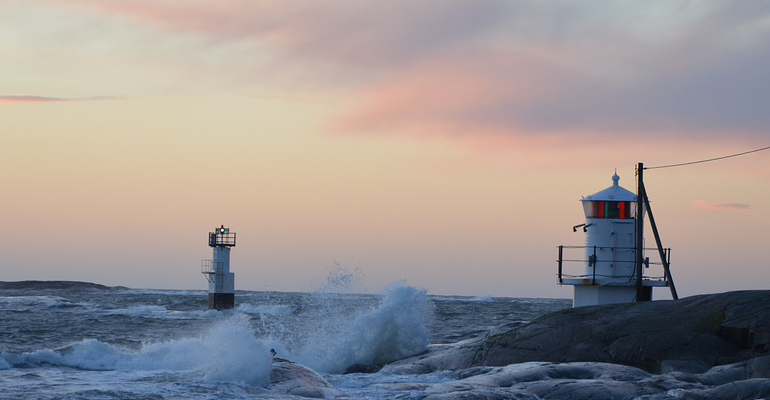- Impacts & Adaptation
Research Programme
- Belinda Storey
Climate Sigma - View the full team
Project Lead
-
Budget
$110,000 -
Duration
December 2017-September 2019
-
Completed project
Climate change and the withdrawal of insurance
Slow and sudden onset thresholds for private insurance retreat under climate change in New Zealand
Coastal hazards are escalating with climate change. In particular, coastal homeowners can expect both sea level rise and more frequent and intense coastal storms. However, we continue to see demand for housing through new coastal residential development and intensification of existing urban areas on the coast. This suggests that climate change related escalating coastal hazards are not yet fully reflected in home-owners decisions to purchase and renovate coastal property.

Consequently, climate risk may not currently be incorporated into the price of residential coastal property.
Evidence from overseas suggests that high insurance premiums and the unavailability of insurance has a stronger impact on private decision making than the uncertain risk of extreme events. Drawing on this, this project explored how coastal housing markets impacted by climate change may respond to “insurance retreat” – if insurance becomes unavailable.
The project identified those locations most likely to lose access to insurance within the next few decades (as the probability of extreme events increases). We conducted extreme sea-level analysis for the Auckland region and Tauranga coastlines, and extreme rainfall analysis for the Coromandel coastline, followed by coastal flood inundation mapping for these regions.
The project estimated the direct economic losses on residential property of an extreme coastal storm making landfall in Tauranga City, to determine whether this size event could trigger reinsurance retreat (the withdrawal of the international insurers, who insure our local insurance companies) from other coastal locations in New Zealand. We also developed a model to price future climate risk, using valuation methods from the real estate industry. Using this information, we were able to explore how to better inform coastal property owners’ decision-making with respect to climate change.
This project in the media:
- Homes to start losing access to insurance within 15 years, Stuff
- Thousands of Kiwi homeowners risk soaring insurance bills, or no cover at all, if sea levels rise, TVNZ Breakfast
- Kiwis face insurance woes, TVNZ
- Several thousand coastal properties expected to be uninsurable in 30 years’ time, Interest
- Climate crisis: Thousands of NZ homes risk pulled insurance cover, NZ Herald
- Is the availability of insurance in New Zealand about to take a hit? Insurance Business NZ
- Seaside residents concerned, Otago Daily Times
- Climate of fear: Thousands of homes facing insurance hikes, Newstalk ZB
- Just how safe from the rising sea level are our beach houses? Stuff
- Climate report: ‘Extreme risk’ to people, buildings and water supplies, NZ Herald
- Coastline concern: insurance costs, Afternoons with Jesse Mulligan, RNZ
- Hamilton really might be the city of the future as seas rise, Stuff
- Granity and Ngakawau get $3.6 million Government-funded seawall, Stuff
- Kiwis can expect more premium increases in high-risk areas, Insurance Business NZ
- World could lose half its sandy beaches by 2100, Afternoons with Jesse Mulligan, RNZ
- Liquid Assets | Climate Change’s effect on coastal property, The Project, TV3
- The Final Meltdown NZ Geographic
- Beach Road Stuff interactive
- Storm damage: Should we re-think coastal living? Afternoons with Jesse Mulligan, RNZ
- High price of coastal living, Build
- Climate change and what it means for your insurance bill, Q+A Business Podcast with Tim Grafton
- Coastal properties may lose insurance, Afternoons with Jesse Mulligan, RNZ
- The risks of living near the ocean, Newsroom
- How climate change could send your insurance costs soaring, Stuff.co.nz
- What you need to know about the previously withheld climate report, Stuff.co.nz
- Climate change and insurance: Expert reaction, Science Media Centre
- Insurance: the canary in the coalmine of climate change? Idealog
- How can NZ insure homes for climate change? NZ Herald
- Sea level-prone homes set for insurance cutoff, RNZ
- Heads in the sand, houses in the water, Newsroom
- Breaking the ice, NIWA
PROJECT TEAM
-
Belinda Storey
Climate Sigma -
Sally Owen
Te Herenga Waka | Victoria University of Wellington -
Jacob Pastor-Paz
Motu Economic and Public Policy Research -
Ilan Noy
Te Herenga Waka | Victoria University of Wellington -
Ryan Paulik
NIWA -
Scott Stephens
NIWA